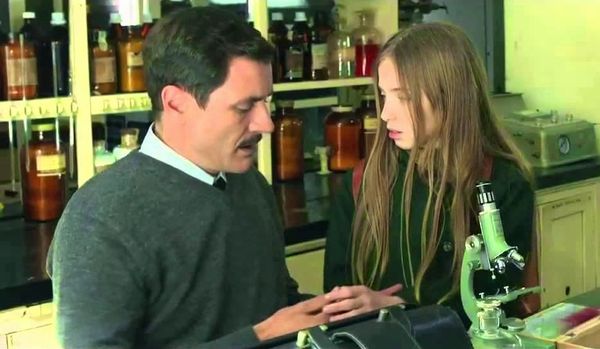Eye For Film >> Movies >> Wakolda (2013) Film Review
Wakolda
Reviewed by: Jennie Kermode

Can he follow them along the desert road? the doctor asks. Of course, they say. It's a simple gesture of support common among people living in harsh conditions. Driving along that road alone could be dangerous. But Patagonia in 1960 is dangerous in a lot of ways, for a lot of people. Violent storms lash the desert. Newspapers say that Israeli investigators are closing in on Eichmann and Mengele. Eva (Natalia Oreiro) and Enzo (Diego Peretti) just want to settle down in the hotel they've inherited and get their children settled in at school, but they keep discovering problems they didn't know they had.
Lilith (Florencia Bado), their 12 year old daughter, has such a problem, according to the doctor. Her bones haven't developed the way they should; she's way below average size for her age. Moving into the hotel, he tries to persuade her father he can help her. When her father refuses, he does it anyway. Lilith is happy to take the experimental hormones, even if they might maker her ill; she wants to fit in better with her peers and she's also becoming smitten with the doctor, reading his notes, learning to see the world in a different light, learning about the Master Race.

Based on a true story, this patient, evocative film balances its sinister subtext with a gentle coming of age story and a portrait of a small, expatriate German community still trying to come to terms with its past. Àlex Brendemühl is superb as the doctor, by turns avuncular and ruthless, somebody on whom the family find themselves increasingly dependent even as they come to distrust him. Nicolás Puenzo's lucid cinematography reflects young Lilith's open, accepting view of her surroundings, presenting a landscape where the monstrous feels no need to confine itself to the shadows but where, because of that, it can be harder to see.
The omnipresent awareness of the vastness of nature that stems from this and Andrés Goldstein's score creates ambiguities around human actions, suggesting that cruel ideologies may have been adopted as a comfort blanket, a shield against recognition of how powerless even 'elite' humans really are. Patagonia is sometimes idyllic, sometimes deadly. The doctor talks about the weakness he believes can come from mixing blood, but everyone we meet here is a transplant, living on foreign soil, alternating speech between German and Spanish, as even their purist beliefs mutate in order to survive.
With finely tuned performances all round, Wakolda breaks down the ordinary to reveal both the sublime and the diabolical. Never showy, it invites us to connect with real life horrors at their most banal and insidious; treatments like those performed on Lilith were, after all, still being practiced in the UK 25 years later, and the cruelty we see from schoolchildren remains as potent today. The film draws us in without the need for additional dramatics and succeeds in making the historical feel immediate and personal. It's a powerful piece of work.
Reviewed on: 06 Feb 2014















